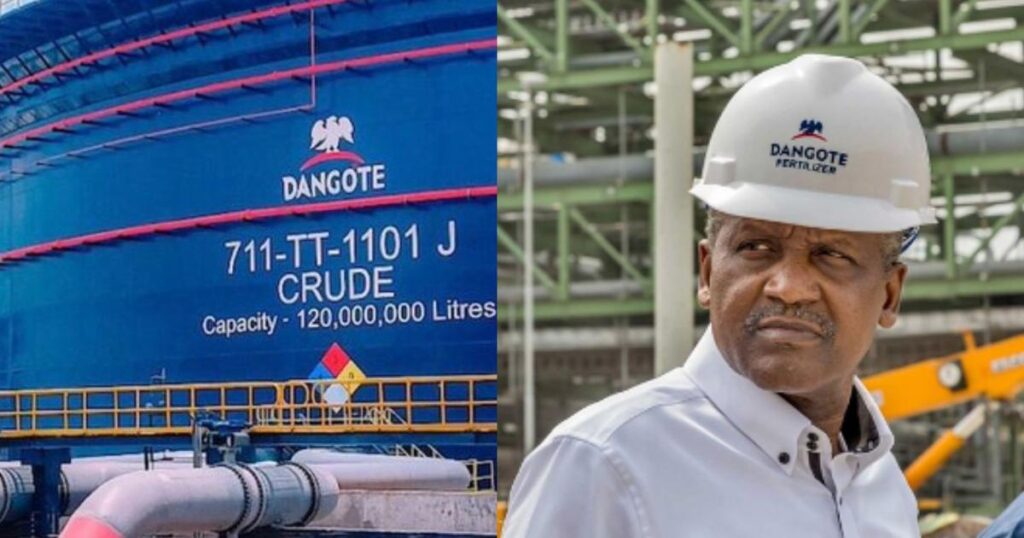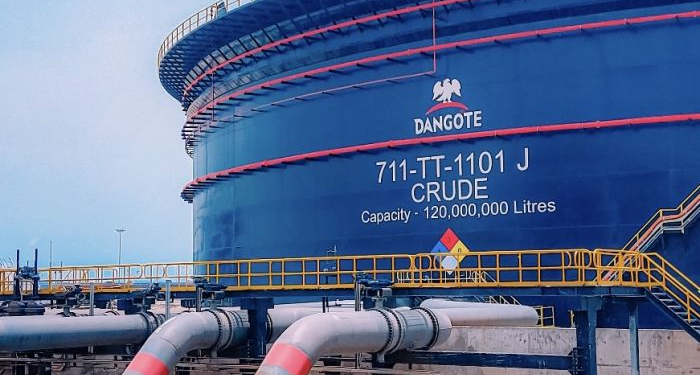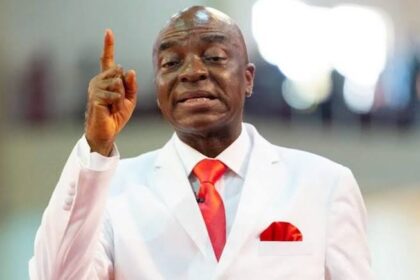-It’s IOCs vs. Nigeria’s Future as NMDPRA Facilitates Toxic Fuel Imports
-Why IOCs’ Attack on Dangote Refinery is an Assault on Nigeria’s Future
-Exposing the NMDPRA’s Corruption
Once upon a dream, Aliko Dangote vied to etch his name in the vast canvas of commerce and ambition. He started the Dangote Refinery, hoping to boost Nigeria’s oil output and enhance the input into his private account. But he never foresaw the tempest on the horizon, until he ran smack into a sinister plot woven by shadowed hands.
Caught in the throbbing heart of intrigue, Dangote stands at the epicenter, sounding an urgent alarm as shadows of a sinister plot woven by the Nigerian Midstream and Downstream Petroleum Regulatory Authority (NMDPRA) in connivance with International Oil Companies (IOCs) unfurl. Together, they vie to sabotage Dangote’s refinery project. …CONTINUE READING


Treachery Exposed! Dangote Fights Back
In a dramatic revelation, Aliko Dangote, Africa’s richest man, has exposed a calculated sabotage plot by International Oil Companies (IOCs) against his landmark refinery project. Prominent among the conspirators is the Nigerian Midstream and Downstream Petroleum Regulatory Authority (NMDPRA).
NMDPRA: A Vessel of Corruption
Under the leadership of Engr. Farouk Ahmed, the CEO of NMDPRA, the regulatory body has devolved into a national saboteur and vessel of monumental corruption. The agency has been accused of reckless issuance of licenses for importing banned, dirty diesel and jet fuel, undermining local production and contributing to environmental degradation. Despite Dangote refinery’s capability to produce high-quality, ECOWAS-compliant diesel, the market is flooded with substandard, high-sulfur fuels, threatening the refinery’s viability.
The Saboteurs Within
While the nefarious activities of the NMDPRA have cast a dark shadow over Nigeria’s quest for energy self-sufficiency, its conspiracy with IOCs manifests jarringly against the fortunes of the nation.
Devakumar Edwin, the Vice President of Oil and Gas at Dangote Industries Limited (DIL), has exposed a calculated scheme by IOCs to cripple the Dangote refinery’s operations. Addressing Energy Editors, Edwin revealed that these international behemoths are inflating crude prices and engineering artificial shortages to force the refinery to import crude from the United States, driving up costs astronomically. “This is not just business rivalry; it’s economic sabotage,” Edwin declared, his voice tinged with frustration. The IOCs’ tactics have pushed the refinery to its financial limits, threatening its very existence.
Toxic Fuel: Beyond NMDPRA’s Dubious Licenses
Compounding Dangote refinery’s woes is NMDPRA, which has recklessly issued licenses for importing banned, dirty diesel and jet fuel. Despite Dangote refinery’s capacity to produce high-quality, ECOWAS-compliant diesel, the market is flooded with substandard, high-sulfur fuels. Edwin lamented, “It’s disheartening to see our own regulatory body undermining our efforts by allowing toxic fuels to saturate the market.”
Public Health at Risk: The Dirty Fuel Crisis
The importation of high-sulfur diesel, deemed carcinogenic and banned in Europe, poses a severe public health crisis for Nigeria. European nations like Belgium and the Netherlands have prohibited such exports, yet Nigeria continues to allow them. This regulatory failure endangers millions, compromising air quality and public health. Edwin painted a grim picture, “Every breath taken by a Nigerian in cities where this fuel is used is a silent, slow death sentence.”
Economic Sabotage: The Bigger Picture
This clash transcends corporate conflict; it represents a strategic assault on Nigeria’s economic autonomy. By keeping Nigeria reliant on imported refined products and exporting raw crude to their home countries, IOCs perpetuate a cycle of dependency. This neo-colonial strategy enriches foreign economies while Nigeria grapples with unemployment and economic stagnation. Edwin’s voice echoed with urgency as he warned, “This is exploitation at its most insidious. We must break free from these chains.”
Government’s Crucial Role in Safeguarding National Interests
To shield local industrialists like Dangote from these predatory tactics, the Nigerian government must take decisive action. Experts within the oil sector argue that enforcing Domestic Crude Supply Obligations (DCSO) is essential to ensure local refineries have priority access to domestic crude at fair prices. Furthermore, banning the import of dirty diesel and jet fuel would bring Nigeria in line with ECOWAS regulations, prioritizing public health over short-term gains. Reforming the NMDPRA to prevent the indiscriminate issuance of import licenses and enforce stricter quality controls is also imperative.
Across Nigeria, citizens and civil society organizations have voiced their concerns, demanding transparency and accountability from the NMDPRA and IOCs. “The consequences of allowing such evasion to go unchecked are dire,” warns a prominent activist. “It sets a dangerous precedent and undermines the trust of the Nigerian people in their government’s ability to protect our national interests.” Critics argue that failing to enforce Nigerian laws in this instance could embolden other multinational corporations to exploit similar loopholes, potentially exacerbating financial challenges for the country and weakening its regulatory credibility.
A Call for Urgent Action
Dangote’s struggle is a grim reminder of the challenges facing Nigeria’s industrial sector. It is crucial for the government to respond decisively. Protecting local industries from external sabotage is not just about securing investments but also about safeguarding Nigeria’s economic future and public health. The moment for action is now, as the stakes are too high to ignore. Nigeria stands at a pivotal point, and the decisions made today will determine its path for future generations.
The saga unfolding around Dangote’s battle with the NMDPRA and IOCs serves as a stark reminder of the challenges facing developing economies in balancing economic growth with regulatory integrity. As the investigation progresses, the Nigerian government faces mounting pressure to deliver justice and restore faith in its ability to safeguard national resources and uphold the rule of law. In the corridors of power and across the bustling streets of Nigerian cities, the call for accountability echoes loudly—a call that resonates not only with financial implications but with the very principles upon which Nigeria’s future prosperity and sovereignty depend.



